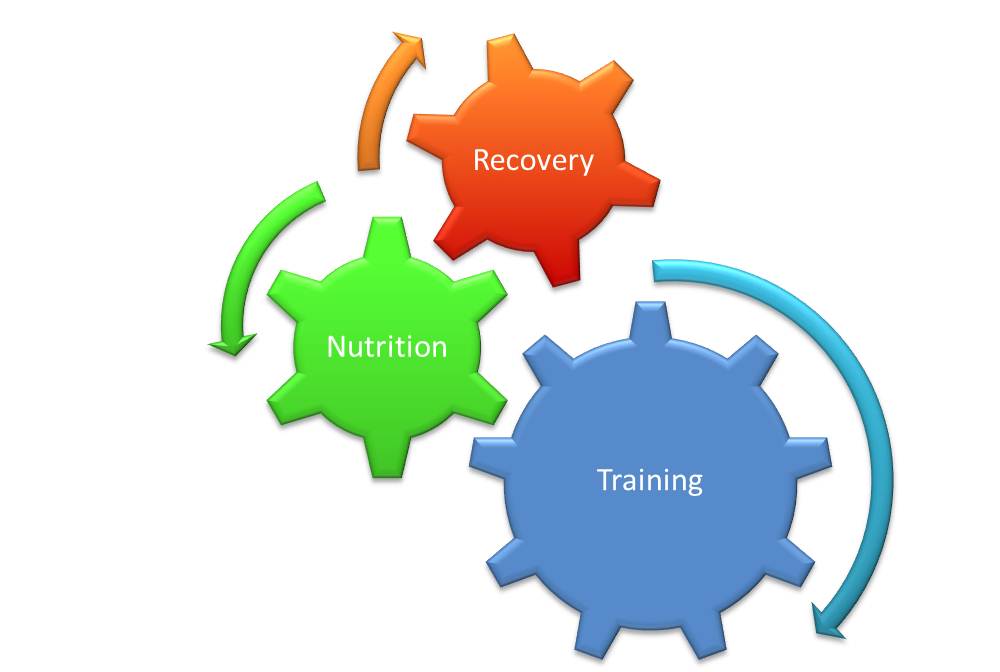 We’ve discussed the three parts to the progression triangle, but the gear diagram to the left helps emphasis the importance of each component. The gear illustration attempts to explain the correlation between neglecting a part of the progression triangle and how removing that “gear” will impact the individual. If we remove recovery, the gears break down and we remain stagnant– or worse, we move backwards.
We’ve discussed the three parts to the progression triangle, but the gear diagram to the left helps emphasis the importance of each component. The gear illustration attempts to explain the correlation between neglecting a part of the progression triangle and how removing that “gear” will impact the individual. If we remove recovery, the gears break down and we remain stagnant– or worse, we move backwards.
This concept is just as important to someone starting a general fitness program as it is to a professional athlete. Without each of the three components, it is impossible to make progress. We train our bodies to create physiological adaptations to the stress, but in order to “supercompensate” we need all three gears moving together. Our bodies do the majority of our healing and recuperation when we sleep, and there is a direct correlation between the amount and quality of sleep with our level of supercompensation.
These negative effects aren’t limited to our physical ability either. Sleep deprivation can cause a long list of medical problems, such as: cognitive impairments, insulin resistance, and increased cortisol levels.
The amount of sleep required for each person is different, but most experts agree that between 7 – 8 hours is the ideal duration for most adults. Children and teenagers often require more sleep.


